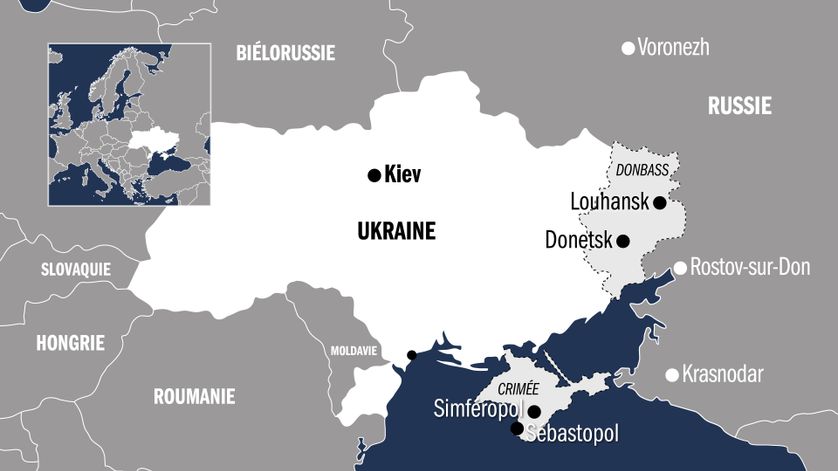After the Roe v. Wade decision by the U.S. Supreme Court, organizations around the United States pledged to pay for travel and abortion care for their employees. But changes to who counts as an employee may exacerbate racial inequality. Since the 1970s, organizations have increasingly outsourced front desk, cooking, cleaning, and other jobs to contract workers. At some companies, many of whom are women of color — and they aren’t covered by these new health care benefits. Even Black and Latina women who are full-time employees have good reasons not to approach white male bosses about accessing these benefits. So, when people talk about abortion bans affecting women of color the most, they aren’t wrong, argues the author; but companies that think they’re helping women might be widening racial divides in the process.
In the wake of the Supreme Court’s decision to reverse Roe v. Wade, commentators, celebrities, and politicians from across the political and economic spectrum have weighed in on its implications. In addition, some of the country’s (and the world’s) most recognizable businesses have released statements indicating their reaction to the ruling. According to Reuters, Tesla, Disney, Amazon, and Netflix, to name a few, have publicly stated that they will offer benefits, including travel costs, to employees who need to leave the state to access abortion care. This follows steps many of these companies have already taken to implement more “family-friendly” workplaces. For instance, Netflix also offers up to a year of paid leave for workers after birth or adoption of a baby, and Microsoft and Google appear regularly on lists of companies with the most generous parental leave benefits.
On the face of it, it would seem that these companies are taking important steps toward both upholding women’s ability to balance work and parenthood and supporting women’s ability to access abortion care even as this right has been denied by the court. But while these corporate decisions are generating positive media from those who support women’s right to choose abortion, they can also serve to perpetuate racial and economic inequalities. To understand why, it’s important to consider how work and organizations have changed over the past several decades and the implications this has for which women work where.
In 1973, the year Roe v. Wade was first decided, it would have been common for companies to hire workers to perform a range of tasks. In a hotel, for instance, some workers would be employed at the front desk, others would clean rooms, still others would work in the kitchen preparing food. But all would be employed by the hotel itself, so whatever benefits that organization chose to confer to its workers would (theoretically) go to all.
That organizational model has been steadily shifting over the past few decades. Today, in what economist David Weil refers to as the fissured workplace, workers are increasingly less likely to be employed directly by companies, even when those companies rely on their labor. In this model, the front desk clerk checking you in to a hotel, the technician who comes to repair your refrigerator, and the food service worker who prepares your meal at the company cafeteria all share a common experience — they probably don’t work for the company you think they do. Instead, organizations are a lot more likely to outsource labor of this kind. They rely on third-party companies, temp workers, and contract employees who do the bulk of this work but are privy to very little of the economic growth that has happened over the past few decades.
This shifting work pattern isn’t inconsequential. Sociologists Donald Tomaskovic-Devey and Dustin Avent-Holt found that this transition has become a major pattern in contributing to economic inequality. That is, companies like Amazon, Netflix, and Google rake in enormous profits and offer high salaries and generous benefits to their workers. But the employees who actually count as “their workers” are a rapidly shrinking bunch. Those left out of this arrangement tend to do the less glamorous work — and at many companies, are also people of color. They have no access to the protections afforded to full-time employees, and get none of the benefits those workers derive, either.
Given this, corporate decisions to fund workers’ travel for abortion care or to include it as a benefit means that this model won’t just replicate economic inequality, but it will have gendered and racial consequences, too. Which women are most likely to work as full-time employees of the companies that are offering these benefits? It’s not women of color, who are underrepresented in many of the industries that are making these changes for their employees.
In tech, where Amazon, Google, and Netflix will allow women time off to access abortion care, as of 2015, women constituted 25% of employees, and Asian American women were the largest group of women of color at a mere 5%. African American and Latina women were a paltry 3 and 1%, respectively. The financial industry, where JPMorgan Chase is following suit, has not been good to women of color either, with Black, Asian, and Latina women facing substantial discrimination in opportunities for advancement in elite sectors of this field. Sociologist Megan Tobias Neeley finds that in the hedge fund industry, a system of patrimonialism — where mostly white male managers find and groom other white men for leadership and advancement opportunities — all but ensures that women of all races, but particularly women of color, face thwarted paths into the profession and minimal mobility if they do manage to get there.
In the fissured workplace, those who are most likely to benefit from abortion-related benefits will be well-educated, highly paid white women. The women working for Google as engineers, software designers, and coders will be the ones who can use company funds to travel out of state for abortion care. The women who empty the trash, cook the food in the cafeteria, and make sure you sign in when you enter the building? Not so much.
That said, women of color who are direct employees of these companies will probably also face particular challenges accessing these benefits. Putting aside the immediate awkwardness and discomfort of telling your boss that you need time off for abortion care, women of color often report more distance from and difficulty forming relationships with their direct managers and supervisors. For Black and Latina women, who are already stereotyped as highly promiscuous and sexually available, going to a (presumably) white male manager to request time off for an abortion isn’t just uncomfortable. It runs the risk of adding to their existing feelings of alienation in these workplaces.
It’s common to hear critics of the Roe reversal note that low-income women of color are going to be those hit hardest by this decision. When companies that use a fissured workplace model offer abortion coverage or benefits to their employees, they help turn this truism into a reality. The employees who can take advantage of this benefit aren’t going to be women of color who work in low paying jobs. Those women toil in jobs without paid parental leave, affordable child care, or sick time. Now, they can add abortion rights to the list of resources they are denied.
Note: This article have been indexed to our site. We do not claim legitimacy, ownership or copyright of any of the content above. To see the article at original source Click Here













